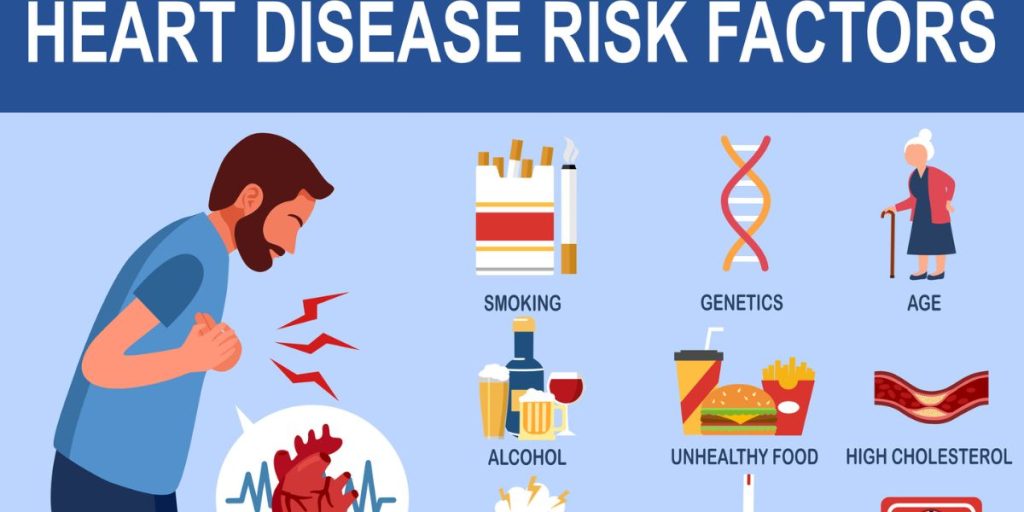Heart disease is a prevalent health concern in Florida, affecting thousands of individuals each year. Understanding the common causes, recognizing symptoms, and adopting preventive measures are crucial steps toward managing and treating heart disease effectively.
In this article, we will explore the top 5 counties that have the highest heart disease rate in Florida and the reasons behind it. We will also learn about the symptoms that will help identify the disease at an exact time.
Counties with the Highest Heart Disease Rates in Florida
Heart disease remains a significant health concern, and understanding its prevalence across different regions is crucial. Stacker investigated data from the Centers for Disease Control and Prevention (CDC) to identify the counties in Florida with the highest rates of heart disease. Let’s delve into the findings:
- Sumter County: Sumter County takes the top spot with a prevalence of coronary heart disease at 9.5%. This county faces a significant burden in terms of heart health.
- Highlands County: Highlands County follows closely, emphasizing the need for awareness and preventive measures. Its heart disease rate is also 9.5%.
- Citrus County: Citrus County ranks third, with a prevalence of coronary heart disease at 9.6%. Efforts to promote heart health are essential here.
- Glades County: This County is another area grappling with heart disease, reporting a 9.6% prevalence.
- Charlotte County: It rounds out the top five, with a prevalence of coronary heart disease at 9.6%.
These counties face unique challenges related to heart health, and community efforts are crucial in combating heart disease. Remember that lifestyle choices, genetics, and access to healthcare play pivotal roles in preventing and managing heart conditions.
Common Causes of Heart Disease in Florida

- Obesity: Florida faces a high prevalence of obesity, which is a significant risk factor for heart disease. Unhealthy eating habits, sedentary lifestyles, and a lack of physical activity contribute to the state’s obesity epidemic.
- High Blood Pressure: Hypertension is a leading cause of heart disease in Florida. Factors such as stress, poor diet, and genetic predisposition contribute to elevated blood pressure levels, putting individuals at a higher risk of heart-related issues.
- Diabetes: The incidence of diabetes in Florida has been steadily rising. Uncontrolled diabetes can damage blood vessels and increase the risk of heart disease. It is essential for individuals with diabetes to manage their blood sugar levels effectively.
- Smoking: Tobacco use remains a prevalent issue in Florida, significantly increasing the risk of heart disease. Smoking damages blood vessels, decreases oxygen levels, and raises blood pressure, all of which contribute to cardiovascular problems.
- Poor Diet: High consumption of processed foods, saturated fats, and excessive salt intake are common dietary factors contributing to heart disease in Florida. A diet rich in fruits, vegetables, and whole grains is essential for heart health.
Symptoms of Heart Disease
Recognizing the symptoms of heart disease is crucial for early intervention. Common signs include:
- Chest Pain or Discomfort: Unexplained chest pain or discomfort, often described as pressure, squeezing, or fullness, may indicate a heart problem.
- Shortness of Breath: Difficulty breathing, especially during physical activity or at rest, could be a symptom of heart disease.
- Fatigue: Persistent fatigue or weakness, unrelated to physical activity, maybe a warning sign of a heart-related issue.
- Irregular Heartbeat: An irregular heartbeat, palpitations, or a fluttering sensation in the chest should not be ignored.
- Swelling: Swelling in the legs, ankles, or abdomen can be indicative of heart failure.
Treatment and Prevention:

Lifestyle Changes: Adopting a heart-healthy lifestyle is crucial. This includes maintaining a balanced diet, engaging in regular physical activity, and avoiding smoking and excessive alcohol consumption.
Medications: Physicians may prescribe medications to manage conditions such as high blood pressure, cholesterol, or diabetes.
Cardiac Rehabilitation: For individuals with a history of heart disease, cardiac rehabilitation programs can offer structured exercise, education, and support for recovery.
Surgical Interventions: In severe cases, surgical interventions such as angioplasty, stent placement, or bypass surgery may be recommended to restore blood flow to the heart.
Conclusion
Heart disease is a significant health challenge in Florida, but awareness, early detection, and proactive lifestyle changes can contribute to better heart health. It’s essential for individuals to recognize the risk factors, pay attention to symptoms, and work closely with healthcare professionals to manage and prevent heart disease effectively. Prioritizing heart health through lifestyle modifications and timely medical interventions can significantly improve the overall well-being of individuals in Florida and beyond.
SOURCE: bestlifeonline.com, cdc.gov